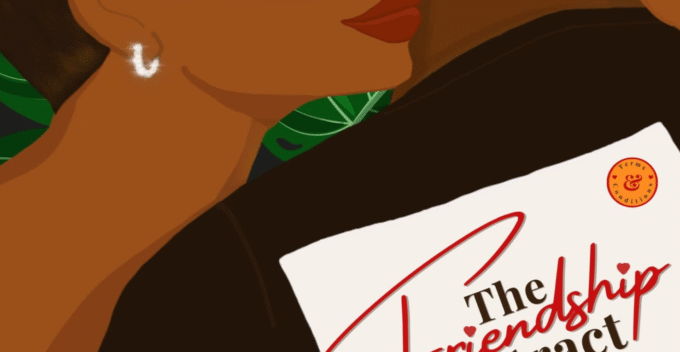Globally, puppets are known for their expressive story telling and their ability to embody exaggerated ideas. For centuries, puppets have been used for folklore and religious epics to modern satire and children’s tales.
Table of Contents
Imagine you are performing on the street with a puppet and suddenly it says something shocking like a threat or a false statement about someone. The crowd gasps, but who’s legally at fault, you or the puppet?
The puppet can’t think or act on its own, so is it just a joke or could you face legal consequences? This exclusive article explores what the law says about using a puppet to say illegal things, diving into real cases and global rules to find out who is really responsible in this unusual situation.
Puppets and Illegal Speech
Using a puppet to convey illegal statements like making threats, spreading hate or insulting someone is still the responsibility of the person controlling it (the puppeteer). Since a puppet is just an object, legally it has no rights or responsibilities.
If the puppet says something wrong, it’s the puppeteer who could face the consequences, since the puppeteer, as the human directing the puppet’s actions, is the focus of legal scrutiny.
Legal Frameworks Governing Speech and Liability
Most legal systems hold puppeteers responsible for what they say, no matter how they say it whether they speak directly, write it down, or use something like a puppet. What matters most is the puppeteer’s intent, the situation, and what was actually said.
- United States: The First Amendment protects guarantees free expression. However, it does not cover defamation and profanity. If a puppet promotes violence or spreads lies, the puppeteer may be held responsible. For example, in the 1968 Brandenburg v. Ohio case, the U.S. Supreme Court ruled that speech that promotes dispute is not protected. If a person uses a puppet to cause violence, they could be jailed up to 5 years in prison under 18 U.S.C. 2101.
- United Kingdom: The United Kingdom’s Public Order Act 1986 criminalizes hate speech, abusive or threatening no matter how it is delivered. A puppeteer could face up to 7 years in prison if her makes his puppet say hate speech.
- European Union: In France, the Loi sur la Liberté de la Presse (1881, Article 29) criminalizes defamation and incitement. A 2020 case (Re Marseille Street Artist) convicted a performer for anti-Semitic remarks via a prop, emphasizing that the human controller is liable. Germany’s Strafgesetzbuch 185 penalizes insult, and a 2018 ruling (Bundesgerichtshof, 5 StR 112/17) upheld liability for a performer using a prop to mock a public figure.
- Other Countries: Discriminatory speech is illegal in Australia under its Racial Discrimination Act. While in India, the law punishes speeches that brings hate.
Common Legal Risk
Incitement to Violence: A puppet calling for violence could put the puppeteer in trouble. In France, a 2021 case convicted a street artist for this exact thing using a prop. In the U.S., Brandenburg v. Ohio sets a high bar for incitement, but a deliberate act could meet it.
Obscenity or Public Nuisance: If a puppet makes offensive remarks, it can break laws like the UK’s Obscene Publications Act or India’s law against indecent content. The puppeteer would be held liable.
Hate Speech: In several countries, hate speech is illegal, even if said through a puppet. In Canada, the Criminal Code (Section 319) penalizes hate speech, and cases like R v. Keegstra show that intent matters more than the method.
Defamation: You may be sued if your puppet falsely accuses someone of a crime. In the U.S., New York Times Co. v. Sullivan states that the puppeteer may face criminal charges if they knowingly lie or act recklessly.In the United Kingdom, the Defamation Act 2013 could lead to damages against the puppeteer.
Intent and Context Matter
Art or Satire: You might be protected, especially under the U.S. free speech laws, if your puppet is clearly being funny or critical without real harm.
Harmful Intent: If you’re trying to incite hate or violence, you can be prosecuted—like in R v. Sheppard or the German hate speech case.
Audience Reaction: If people believe the puppet is expressing your real views, courts are more likely to hold you responsible, like in Australia’s Eatock v. Bolt case.
Global Perspectives and Precedents
No country globally has specific laws addressing puppets and illegal speech, however related cases clarify liability:
- France: Re Paris Performer (2021) convicted a performer for hate speech via a prop, reinforcing that tools like puppets don’t absolve liability.
- Canada: R v. Keegstra (1990) held that hate speech liability rests with the speaker, regardless of how it’s expressed.
- United States: Falwell v. Flynt (1988) confirmed that the person speaking is responsible, not the method used, implying puppeteers are responsible.
Practical Tips
To avoid landing in legal troubles when using puppet, consider these:
- Make sure puppet statements are clearly artistic or satirical, with no intent to harm.
- Stay away from sensitive topics like hate speech or defamation in public shows.
- Consult a lawyer if you are planning to perform in countries with strict speech rules.
FAQs
| Questions | Answers |
| Are puppets legally responsible for illegal statements? | No, puppets are not responsible. This is because the puppet is just an object, so the puppeteer will be responsible. |
| Can I be sued if my puppet makes a defamatory comment? | Yes, you would be sued if your puppet says something false and harmful. |
| What if my puppet incites violence? | You can be charged with incitement if your puppet incites violence. |
| What penalties might I face if my puppet makes an illegal statement? | It depends on the country. In the U.S. you can be jailed for up to five years in prison, while you can face up to 7 years in the UK. |
| Does context like a comedy show matter? | Yes, courts may be more lenient in artistic settings, but intent still matters |
Conclusion
If your puppet makes illegal or false statements, it won’t face charges—you will. Courts worldwide agree the puppeteer is responsible. From cases like Brandenburg v. Ohio to Re Paris Performer, the law looks at the human behind the act.
So, if your puppet is cracking jokes or just stirring controversy, remember: you pull the strings, and you face the consequences.

















